

March 30, 2018 •
On this #330 day, get all the government, ethics and elections news you can use from this proud Akron, Ohio based company!
On this #330 day, get all the government, ethics and elections news you can use from this proud Akron, Ohio based company!
March 30, 2018 •
National: Political Lobbyists Are the New Hot Thing in Pop Culture MarketWatch – Tom Teodorczuk | Published: 3/26/2018 Lobbyists have long been a fixture of movies ranging from “The American President” to “Mr. Smith Goes to Washington.” Now, the process […]

National:
Political Lobbyists Are the New Hot Thing in Pop Culture
MarketWatch – Tom Teodorczuk | Published: 3/26/2018
Lobbyists have long been a fixture of movies ranging from “The American President” to “Mr. Smith Goes to Washington.” Now, the process of influencing elected representatives is increasingly taking center stage in plays, movies, and literature. The desperate lobbyist is starting to rival the embattled politician and scoop-hungry reporter as a staple character of pop culture. Sarah Burgess said her inspiration for writing “Kings” was a newspaper story. “I happened to encounter an article about these retreats that lobbyists will attend with politicians at big resorts and that seemed funny to me and so American,” Burgess said.
Federal:
Fund-Raiser Held Out Access to Trump as a Prize for Prospective Clients
MSN – Kenneth Vogel and David Kirkpatrick (New York Times) | Published: 3/25/2018
After Donald Trump’s election, Elliot Broidy quickly capitalized, marketing his connections to Trump to politicians and governments around the world, including some with unsavory records. Broidy suggested to clients and prospective customers of his defense contracting company, Circinus, that he could broker meetings with the president, his administration, and congressional allies. Broidy’s ability to leverage his political connections to boost his business illuminates how Trump’s unorthodox approach to governing has spawned a new breed of access peddling in the swamp he vowed to drain.
Manafort Associate Had Russian Intelligence Ties During 2016 Campaign, Prosecutors Say
Washington Post – Spencer Hsu and Rosalind Helderman | Published: 3/27/2018
Court documents filed by special counsel Robert Mueller’s team reveal that Donald Trump’s former deputy campaign chairperson, Richard Gates, was knowingly working with an individual with ties to Russian intelligence during the presidential campaign. Prosecutors alleged this unnamed person worked for one of former Trump campaign chairperson Paul Manafort’s companies and was in touch with Gates in September and October 2016. The filing identifies the ex-spy only as “Person A.” The description matches that of Konstantin Kilimnik, the Russian manager of Manafort’s lobbying office in Kiev.
Rep. Didn’t Report $50K in Donations as Registered Lobbyist
Cleveland Plain Dealer – Julie Carr Smyth (Associated Press) | Published: 3/28/2018
U.S. Rep. Jim Renacci did not disclose nearly $50,000 in campaign contributions he made while registered as a federal lobbyist. Registered lobbyists are required to disclose all federal political donations of more than $200. His campaign said he was registered as a lobbyist with the consulting firm he helped launch in 2008 only as a precautionary measure. Renacci’s attorney, Laura Mills, provided the Associated Press with a form that listed Renacci’s status as “inactive” as of August 1, 2009. The campaign said only active lobbyists are required to disclose their contributions. But the AP found Mills did not file the companion form required to deactivate his registration until May 2011. Renacci continued to file and digitally sign lobbyist disclosure reports, other than the two he missed, through mid-2011, as an active lobbyist would.
Trump’s Lawyer Raised Prospect of Pardons for Flynn and Manafort as Special Counsel Closed In
MSN – Michael Schmidt, Jo Becker, Mark Mazzetti, Maggie Haberman, and Adam Goldman (New York Times) | Published: 3/28/2018
The New York Times reported that John Dowd, the former lead defense attorney in charge of managing President Trump’s communications with special counsel Robert Mueller, suggested the possibility of pardons for two of the most critical figures in the Russia investigation at the height of the inquiry. Dowd spoke to lawyers representing former national security adviser Michael Flynn and former Trump campaign chairperson Paul Manafort last year, as Mueller’s investigation was closing in on both men. The discussions raise questions about whether Dowd was offering pardons to influence their decisions about whether to plead guilty and cooperate in the investigation. Legal experts are divided about whether such offers might constitute obstruction of justice.
From the States and Municipalities:
Maryland: Supreme Court Again Weighs Voting Maps Warped by Politics
New York Times – Adam Liptak | Published: 3/28/2018
Dealing with an issue that could affect elections across the country, U.S. Supreme Court justices wrestled with how far states may go to craft electoral districts that give the majority party a huge political advantage. But even as they heard their second case on partisan redistricting in six months, the justices expressed uncertainty about the best way to deal with a problem that several said would get worse without the court’s intervention. The arguments the court heard were over an appeal by Republican voters in Maryland who object to a congressional district that Democrats drew to elect a candidate of their own. The Maryland case is a companion to one from Wisconsin in which Democrats complain about a Republican-drawn map of legislative districts. That case was argued in October and remains undecided.
Missouri: An Affair, a Photo and a Felony Charge: Missouri’s governor is waging a campaign for political survival
Washington Post – Sean Sullivan | Published: 3/22/2018
Missouri Gov. Eric Greitens, a former Navy SEAL who once volunteered with Mother Teresa, is aggressively trying to clear his name after allegations he took a naked photograph of a woman without her consent – after taping her hands to exercise rings and blindfolding her. Under indictment for felony invasion of privacy related to an extramarital affair, Greitens is seeking to discredit the Democratic prosecutor who went after him and battling back against Republicans calling on him to step down. Greitens is getting a fierce blowback from fellow Republicans already fed up with his bare-knuckle politics and broken promises of the past year.
New Mexico: New Mexico Outlines Future Limits on Federal Campaign Cash
Modesto Bee – Morgan Lee (Associated Press) | Published: 3/28/2018
Politicians returning from Washington, D.C. to run for office in New Mexico are likely to find a clear legal path in the future to bring stockpiles of campaign dollars with them under a new agreement signed by state campaign finance regulators and attorneys for U.S. Rep. Steve Pearce. A proposed settlement allows Pearce to use more than $900,000 he raised while in Congress in his campaign for governor as the lone Republican contender. Linked to the settlement are guidelines aimed to prevent federal-to-state transfers from becoming a loophole around New Mexico campaign finance law, said Joey Keefe, a spokesperson for the secretary of state’s office.
New York: Corruption Trial Bruises Powerful Law Firm
Albany Times Union – Robert Gavin | Published: 3/24/2018
Todd Howe, a onetime government insider, testified recently against Joseph Percoco, the former top aide to New York Gov. Andrew Cuomo, and his three co-defendants in a corruption trial. Howe also inflicted collateral damage to the Albany-based law and lobbying firm Whiteman Osterman & Hanna, where Howe managed to stay employed for six years even after being convicted of bank fraud. Percoco was convicted on three of the six counts against him, including honest services fraud and soliciting bribes. In the wake of the trial, people are “certainly going to connect corruption with that law firm,” said Vincent Bonventre, a law professor at Albany Law School.
New York: De Blasio Donor Says He Steered Thousands in Bribes to Mayor’s Campaigns
New York Times – Brian Rosenthal | Published: 3/22/2018
Harendra Singh testified about his efforts to use campaign contributions funneled to New York City Mayor Bill de Blasio – as much as $80,000 raised from others, and much more personally by using “straw donors” to skirt contribution limits – to gain better terms from the city during lease negotiations for one of his restaurants. Singh also suggested for the first time that de Blasio not only knew of the illegal arrangement, but the mayor encouraged it and actively helped the restaurateur. Singh was testifying in the corruption trial of Edward Mangano, the former Nassau County executive, and John Venditto, the former Town of Oyster Bay supervisor, both of whom Singh has pleaded guilty to bribing.
Oregon: John Kitzhaber Agrees to Pay $20,000 for Ethics Law Violations
Portland Oregonian – Hillary Borrud | Published: 3/28/2018
Former Oregon Gov. John Kitzhaber agreed to pay a $20,000 civil penalty to settle 10 violations of state ethics law, signaling a close to the years-long scandal that forced him to resign. The Oregon Government Ethics Commission will meet to sign off on the agreement. The maximum fine that could have levied was $50,000. The violations stem from conflicts-of-interest involving an overlap between Kitzhaber’s role as governor and his interest in a business owned by First Lady Cylvia Hayes. Hayes had a dual role as an unpaid adviser in the governor’s office and was privately paid to consult on the same issues.
Pennsylvania: Lobbyist, Lawmakers Entwined in Complex Relationship: Is it influence peddling, or essential?
StateImpact Pennsylvania – Susan Phillips | Published: 3/27/2018
There are more than 1,200 registered lobbyists in Harrisburg. Some work for firms, which take on multiple clients and represent different interests. Often, former lawmakers or regulators serve this role, using their old relationships for leverage. Some work specifically for a company or nonprofit. State Sen. Judy Schwank used to work for a nonprofit, and she says they are outgunned at the Capitol. “[Nonprofits] don’t have the dollars necessary to influence legislation the way that some other organizations that are for profit do,” said Schwank.
Washington: Inslee Signs Campaign Finance Bill
Everett Herald – Jerry Cornfield | Published: 3/29/2018
Washington Gov. Jay Inslee signed a bill transforming how the state administers and enforces its campaign finance laws. House Bill 2938 aims to make clearer for filers how to follow reporting rules and avoid mistakes that can incite a complaint against them. Under the new law, every complaint must first be filed with the Public Disclosure Commission. Staff will have greater ability to deal with minor errors and technical corrections, and authority to refer large and complex cases to Attorney General Bob Ferguson.
Wisconsin: Wisconsin GOP Will Aim to Block Judge’s Order to Gov. Scott Walker to Call Special Election
Milwaukee Journal Sentinel – Jason Stein | Published: 3/23/2018
Wisconsin Republicans refused to accept a court order to hold special elections to fill two vacant legislative seats, calling lawmakers back to Madison to rewrite election laws in an extraordinary session. Legislative leaders said the court order means special elections and regular elections for the open seats will occur simultaneously, confusing voters and wasting tax dollars. The Legislature must reconvene to revise special election statutes, they said. Senate Minority Leader Jennifer Shilling said Republicans were throwing a “temper tantrum” because they lost in court and fear the open seats could flip to Democratic control.

State and Federal Communications produces a weekly summary of national news, offering more than 60 articles per week focused on ethics, lobbying, and campaign finance.
March 29, 2018 •
Wisconsin Gov. Scott Walker issued an executive order calling special elections for two legislative seats. He initially refused to call the elections, defying a court order issued last week. He lost on appeal Wednesday and was forced to call the […]
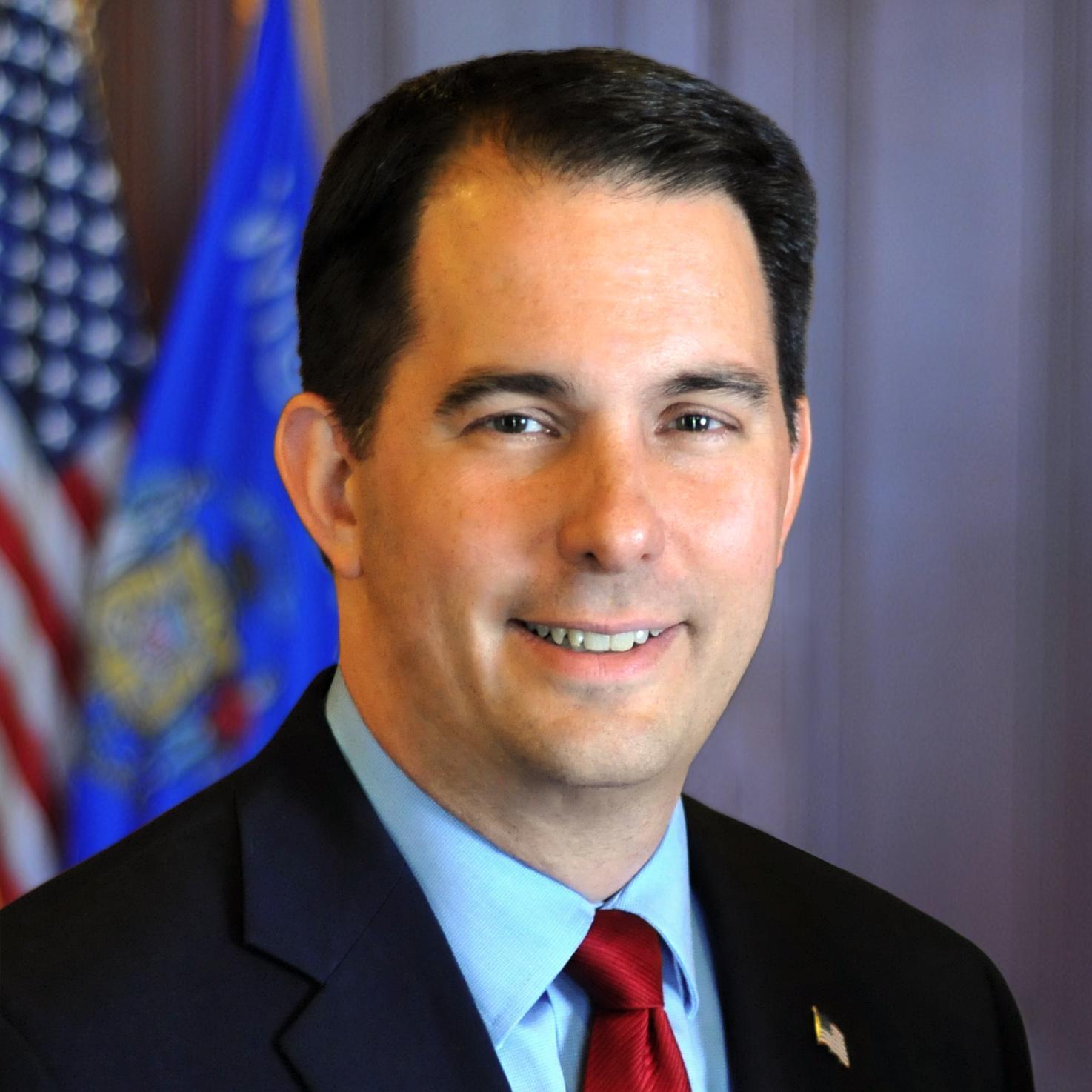 Wisconsin Gov. Scott Walker issued an executive order calling special elections for two legislative seats.
Wisconsin Gov. Scott Walker issued an executive order calling special elections for two legislative seats.
He initially refused to call the elections, defying a court order issued last week. He lost on appeal Wednesday and was forced to call the elections by noon today.
Special primary elections will be held on May 15 with special general elections on June 12.
Republican lawmakers sought to change election laws after the court order was issued so Walker could avoid calling the elections; they have since abandoned their efforts.
March 29, 2018 •
This week, Gov. Tom Wolf announced what he called a 21st century voting reform plan. This announcement follows an ethics reform plan announced by Gov. Wolf earlier this month. The voting reform plan includes creating an independent commission to draw […]
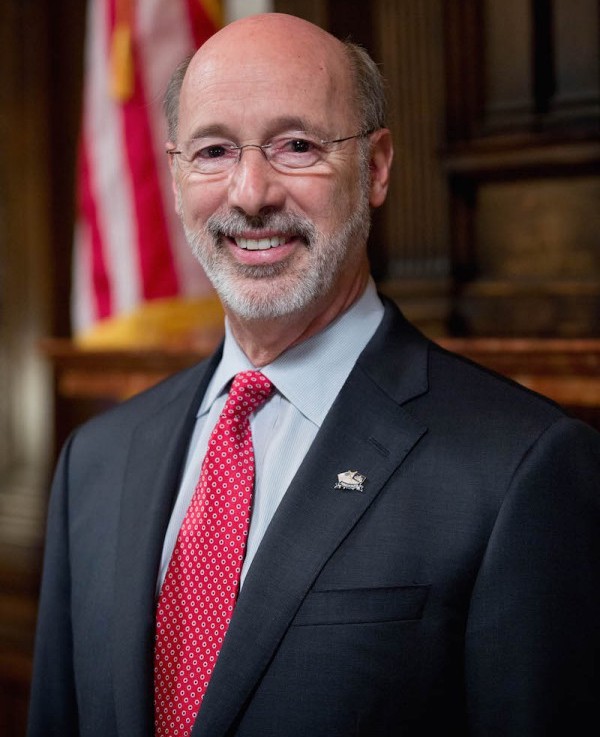 This week, Gov. Tom Wolf announced what he called a 21st century voting reform plan. This announcement follows an ethics reform plan announced by Gov. Wolf earlier this month.
This week, Gov. Tom Wolf announced what he called a 21st century voting reform plan. This announcement follows an ethics reform plan announced by Gov. Wolf earlier this month.
The voting reform plan includes creating an independent commission to draw electoral maps, expanded voting rights through simpler voter registration, and campaign finance reform.
The proposed campaign finance reform could include restrictions on contributions from political action committees and contribution limits.
Both Democratic and Republican legislators will be working to introduce bills towards the Governor’s efforts.
March 29, 2018 •
One of the great things about my job as Manager of Corporate Social Responsibility is I get the chance to be out in the community right where the action is. Yesterday I was a social justice facilitator at a historic […]
 One of the great things about my job as Manager of Corporate Social Responsibility is I get the chance to be out in the community right where the action is. Yesterday I was a social justice facilitator at a historic community conversation called “It’s Time to Talk: Forums on Race.” The event was conceived and hosted by the Akron Urban League, Temple Israel of Akron, and the YWCA Greater Cleveland.
One of the great things about my job as Manager of Corporate Social Responsibility is I get the chance to be out in the community right where the action is. Yesterday I was a social justice facilitator at a historic community conversation called “It’s Time to Talk: Forums on Race.” The event was conceived and hosted by the Akron Urban League, Temple Israel of Akron, and the YWCA Greater Cleveland.
State and Federal Communications President and CEO Elizabeth Bartz and five of the company’s staff participated.
Three hundred and fifty people gathered at Akron’s Quaker Station to begin a dialog about racism, discrimination, and unconscious bias. I found the experience to be life-giving and life-changing.
We were provided five months of training under the leadership of Urban League President and CEO Dr. Sadie Winlock, Rabbi Joshua Brown, and Laurie Zuckerman of Zuckerman Consulting. Keynote speaker Dr. Jerry Sue Thornton set the tone and then the discussion at each table began.
There were feelings of pain, candor, hope and responsibility in the room: “We sit on the shoulders of leaders in our region who have had conversations, shared personal stories and continue to try and understand people and cultures different from their own. Today is one of several luncheons taking place across the country to discover and recover from core hurts and move our society into a cohesive and collaborative space.”
What did this event do for me? I have a new resolve to get out of my comfort zone, to do a whole lot more listening, and to make some intentional friendships with people who are different from me. I am so glad I had the chance to be a small part of it. Thank you, State and Federal Communications for making this possible!
Here is a great article on WKSU describing the event.
Gov. Jay Inslee partially vetoed and signed into law a bill addressing campaign finance reporting and enforcement requirements. The governor vetoed provisions in House Bill 2938 relating to independent expenditure reporting and special reporting requirements for large contributors. Signed into […]
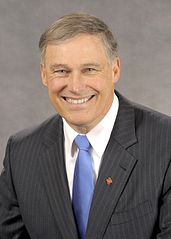 Gov. Jay Inslee partially vetoed and signed into law a bill addressing campaign finance reporting and enforcement requirements.
Gov. Jay Inslee partially vetoed and signed into law a bill addressing campaign finance reporting and enforcement requirements.
The governor vetoed provisions in House Bill 2938 relating to independent expenditure reporting and special reporting requirements for large contributors.
Signed into law are provisions in the bill limiting the attorney general’s enforcement jurisdiction to matters referred from the Public Disclosure Commission, as well as provisions amending filing procedures for citizen’s enforcement actions.
The law takes effect June 7, 2018.
March 29, 2018 •
On March 28, the Idaho Legislature adjourned its 2018 legislative session. The adjournment process was revised following a lawsuit over a veto last year. Lawmakers stayed in the capital an additional five days to preserve the right to override any […]
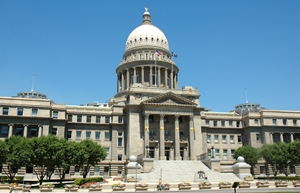 On March 28, the Idaho Legislature adjourned its 2018 legislative session.
On March 28, the Idaho Legislature adjourned its 2018 legislative session.
The adjournment process was revised following a lawsuit over a veto last year.
Lawmakers stayed in the capital an additional five days to preserve the right to override any vetoes from the governor.
Bills passed include reductions to personal and corporate income tax rates, new K-12 public school science standards, and the codifying of existing stand your ground case laws.
March 27, 2018 •
The South Dakota Legislature adjourned its 2018 session on March 26. During the 40-day session, lawmakers passed a $4.7 billion budget increasing funding to education, Medicaid providers, and state employees. Additionally, several measures adding new rules for citizens’ initiative campaigns […]
 The South Dakota Legislature adjourned its 2018 session on March 26.
The South Dakota Legislature adjourned its 2018 session on March 26.
During the 40-day session, lawmakers passed a $4.7 billion budget increasing funding to education, Medicaid providers, and state employees.
Additionally, several measures adding new rules for citizens’ initiative campaigns were passed.
March 27, 2018 •
Wisconsin Republicans plan to call an extraordinary session to amend state election law rather than comply with a court order to hold special elections. Last week, a judge ordered Gov. Walker to schedule special elections by March 29 to fill […]
 Wisconsin Republicans plan to call an extraordinary session to amend state election law rather than comply with a court order to hold special elections.
Wisconsin Republicans plan to call an extraordinary session to amend state election law rather than comply with a court order to hold special elections.
Last week, a judge ordered Gov. Walker to schedule special elections by March 29 to fill two vacant legislative seats.
Current law requires the governor to call a special election for any vacancy occurring prior to May of an election year.
Walker doesn’t believe the law applies in this case, as the vacancies occurred in December; he claims the requirement only applies to vacancies occurring between January and May of an election year.
Democrats argue Walker is refusing to hold the elections because Republicans may lose the seats.
March 27, 2018 •
On March 21, Senators Marco Rubio and Tom Cotton and Rep. Joe Wilson introduced a bill to limit exemptions for registration under the Foreign Agents Registration Act (FARA). Senate Bill 2583, the Foreign Influence Transparency Act, amends FARA to limit […]
 On March 21, Senators Marco Rubio and Tom Cotton and Rep. Joe Wilson introduced a bill to limit exemptions for registration under the Foreign Agents Registration Act (FARA).
On March 21, Senators Marco Rubio and Tom Cotton and Rep. Joe Wilson introduced a bill to limit exemptions for registration under the Foreign Agents Registration Act (FARA).
Senate Bill 2583, the Foreign Influence Transparency Act, amends FARA to limit the exemption from the registration requirements for persons engaging in activities in furtherance of bona fide religious, scholastic, academic, or scientific pursuits or the fine arts to activities which do not promote the political agenda of a foreign government.
The bill limits the existing registration exemptions by qualifying they apply “only if the activities do not promote the political agenda of a government of a foreign country.” The legislation also amends the Higher Education Act of 1965 by requiring the disclosures of foreign gifts and contracts over $50,000 made to universities.
“The goal of this legislation is to increase transparency between foreign governments, universities, and communities,” said Wilson in his press release.
A statewide special election will be held June 5, the same date as the primary elections, on a proposed amendment to the South Dakota Constitution. If approved, the amendment will affect Marsy’s Law victim’s rights provisions approved by voters in […]
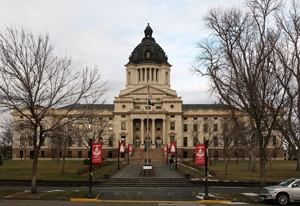 A statewide special election will be held June 5, the same date as the primary elections, on a proposed amendment to the South Dakota Constitution.
A statewide special election will be held June 5, the same date as the primary elections, on a proposed amendment to the South Dakota Constitution.
If approved, the amendment will affect Marsy’s Law victim’s rights provisions approved by voters in 2016.
The attorney general’s deadline to prepare a statement, title, explanation, and recitation of a “Yes” or “No” vote for the proposed amendment is March 27.
March 23, 2018 •
Former Hawaii House Speaker Joseph Souki is being forced to resign after admitting to inappropriately touching and kissing multiple women over his legislative tenure. His resignation is part of a State Ethics Commission settlement agreement stemming from allegations filed by […]
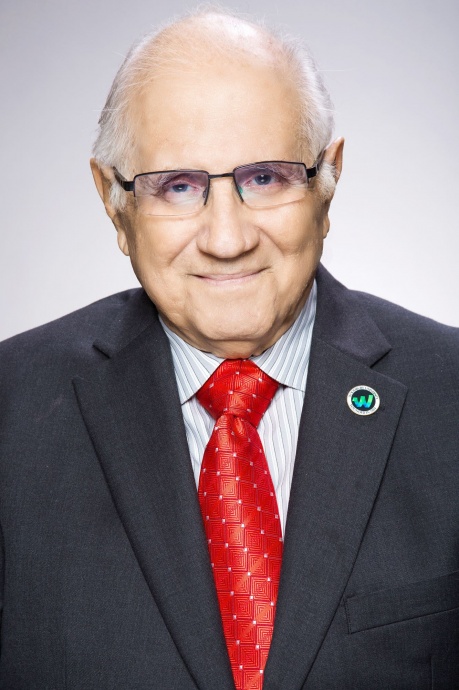 Former Hawaii House Speaker Joseph Souki is being forced to resign after admitting to inappropriately touching and kissing multiple women over his legislative tenure.
Former Hawaii House Speaker Joseph Souki is being forced to resign after admitting to inappropriately touching and kissing multiple women over his legislative tenure.
His resignation is part of a State Ethics Commission settlement agreement stemming from allegations filed by multiple women.
The Commission agreed to resolve the matter if Souki resigns by March 30, issues a public apology, pays an administrative fine, and does not seek public office for two years.
Souki, 86, has served in the Hawaii State Legislature since 1982.
March 23, 2018 •
A lot of campaign finance, ethics, elections and lobbying news to cover in this weeks NYCU Video Digest!
A lot of campaign finance, ethics, elections and lobbying news to cover in this weeks NYCU Video Digest!
March 23, 2018 •
National: There’s Never Been a Native American Congresswoman. That Could Change in 2018. New York Times – Julie Turkewitz | Published: 3/19/2018 There are at least four indigenous women running for Congress, three more are bidding for governors’ offices, and […]

National:
There’s Never Been a Native American Congresswoman. That Could Change in 2018.
New York Times – Julie Turkewitz | Published: 3/19/2018
There are at least four indigenous women running for Congress, three more are bidding for governors’ offices, and another 31 are campaigning for seats in state Legislatures, from both sides of the aisle. The numbers far outstrip past election cycles, longtime observers of native politics say, and they are only partly driven by the liberal energy and #MeToo declarations that have flourished since Donald Trump’s election. More broadly, they are part of a decades-long shift in which native communities, long marginalized by U.S. voting laws and skeptical of a government that stripped them of land and traditions, are moving into mainstream politics.
Federal:
Bye-Bye Box Seats? Tax Law May Curb Corporate Cash at Games
Pittsburgh Post-Gazette – Marcy Gordon (Associated Press) | Published: 3/18/2018
K Street lobbyists who helped craft the Republican tax legislation could now be pinched by it. American companies spend hundreds of millions of dollars annually on entertaining customers and clients at sporting events, tournaments, and arts venues, an expense that until this year they could partially deduct from their tax bill. But a provision in the new law eliminates the long-standing 50 percent deduction in an effort to curb the overall price tag of the legislation and streamline the tax code. The provision is one of the many under-the-radar consequences slowly emerging from the new tax law.
Federal Election Officials Failed to Enforce Campaign Finance Requirements on Outside Group in 2010, Judge Rules
Washington Post – Michelle Ye Hee Lee | Published: 3/20/2018
U.S. District Court Judge Christopher Cooper ruled the FEC did not properly enforce campaign finance laws in the case a “dark money” group that was active during the 2010 midterm elections. Citizens for Responsibility and Ethics in Washington alleged that certain political ads paid for by the nonprofit American Action Network should be considered “electioneering” activity and therefore subject to disclosure requirements of who paid for the messages. The FEC deadlocked along party lines and dismissed two complaints. Cooper said the dismissals ran “contrary to law” and were based on erroneous and narrow interpretations of federal statutes governing the FEC’s enforcement powers.
Judge Rules Defamation Case Against Trump May Proceed
Washington Post – Mark Berman and Frances Stead Sellers | Published: 3/20/2018
A New York judge rejected a bid by President Trump to dismiss a lawsuit relating to his alleged groping of Summer Zervos, who was a contestant on “The Apprentice.” Lawyers for Trump argued he was immune from the suit in state court while serving as president. “Nothing in the Supremacy Clause of the United States Constitution even suggests that the President cannot be called to account before a state court for wrongful conduct that bears no relationship to any federal executive responsibility,” Judge Jennifer Schecter wrote. The ruling raises the possibility that Trump could be ordered to submit to a deposition about his conduct toward Zervos and perhaps other women, as well.
From the States and Municipalities:
Alabama – Etowah Sheriff Pockets $750k in Jail Food Funds, Buys $740K Beach House
AL.com – Connor Sheets | Published: 3/13/2018
A sheriff in Alabama took home as personal profit more than $750,000 that was budgeted to feed jail inmates and then purchased a $740,000 beach house. And it is perfectly legal in Alabama, according to state law and local officials. The state has a Depression-era law that allows sheriffs to “keep and retain” unspent money from jail food-provision accounts. Sheriffs take excess money as personal income and, in the event of a shortfall, are personally liable for covering the gap. In most cases, the public does not know how much money is involved because sheriffs do not need to report extra income of less than $250,000 a year.
Arkansas – Former Arkansas Legislator’s Name Surfaces in Graft Case
Arkansas Online – Doug Thompson | Published: 3/17/2018
An Arkansas judge admitted to accepting $100,000 in bribes from an indicted lobbyist while the judge was a state lawmaker, federal prosecutors said. Jefferson County Judge Henry Wilkins IV admitted to the FBI in February that he took the money from lobbyist Milton Cranford. Cranford, an executive for the nonprofit Preferred Family Healthcare, pleaded not guilty to charges of conspiracy and accepting bribes. Prosecutors say the nonprofit paid bribes through Cranford’s lobbying firms to win state grants and taxpayer money. Prosecutors said Wilkins received the money in the form of donations to a church where he serves as pastor. In exchange for the contributions, authorities say, Cranford counted on Wilkins’ support while he served in the state Legislature from 2011 to 2015.
California – Imperial County Is a Web of Friends and Family. Is It Too Small to Investigate Itself?
Palm Springs Desert Sun – Sammy Roth | Published: 3/15/2018
When Gilbert Otero said he would investigate the Imperial Irrigation District, he took on a case involving more than $100 million in energy contracts and some of the most powerful people in Imperial County, California, where Otero is the district attorney. But there are close ties between Otero and the individuals he is investigating. The Imperial Irrigation District and the county government wield most of the political power, and top officials at those agencies are often friends or relatives of powerful farmers. Many of them have done business together. For some legal ethics experts, the links between Otero’s office and the people he is investigating are a clear sign he should recuse himself and refer the case elsewhere. They are also a sign that Imperial County may be too small to investigate itself.
Florida – In Miami, MCM Thrives on Big County Contracts. Now It Faces the FIU Bridge Catastrophe
Miami Herald – Douglas Hanks | Published: 3/19/2018
Munilla Construction Management (MCM) has a long record of winning contracts and favors from local officials in South Florida, a legacy now facing its harshest test as the firm was behind the Florida International University pedestrian bridge that collapsed and killed six people. The catastrophe threw a spotlight not just on MCM’s large projects, but on its ties to Miami’s political circles as well. In past years, the company has hired both of Miami-Dade Mayor Carlos Gimenez’s sons – Julio as an executive and C.J. as a registered lobbyist. The mayor’s wife, Lourdes, is a cousin to the Munilla brothers, and C.J. Gimenez has offered the firm pro bono communications advice after the bridge collapse.
Illinois – Denounced by His Party as a Nazi, Arthur Jones Wins Illinois G.O.P. Congressional Primary
New York Times – Liam Stack | Published: 3/21/2018
A Holocaust denier and neo-Nazi has officially become the Republican nominee for a congressional seat in Illinois. Arthur Jones won the nomination after running uncontested in the GOP primary for the Third Congressional District, which includes part of Chicago and its suburbs. Jones’s campaign website contains a page devoted to the Holocaust, which he said in an interview was “a greatly overblown nonevent” and “an international extortion racket.” The state Republican Party has sought to distance itself from Jones in recent weeks, blanketing the district with campaign fliers and robocalls urging voters to “stop Illinois Nazis.” GOP leaders are in talks with several potential candidates to run as an independent in November.
Nevada – Lack of Transparency Questioned in Campaign Theft by DA’s Aide
Las Vegas Review-Journal – Jeff German and David Ferrara | Published: 3/19/2018
Clark County District Attorney Steve Wolfson was not obligated under Nevada law to publicly disclose the theft of nearly $42,000from his campaign account, the secretary of state’s office said. “Money stolen from a campaign account and then returned within a few weeks does not qualify as a reportable contribution or expense,” said Jennifer Russell, a spokesperson for Secretary of State Barbara Cegavske. But some are questioning that interpretation of the statute, saying it goes against the law’s intent to maintain transparency in the election process.
New Mexico – Avenue for Lobbyist Harassment Complaints Unclear
Albuquerque Journal – Marie Baca and Dan Boyd | Published: 3/20/2018
Lobbyists in New Mexico are regulated by the secretary of state’s office, which oversees their registration and financial disclosures and can refer individuals to law enforcement when they are not in compliance with regulations. But the office does not have the authority to investigate harassment or sexual misconduct complaints that involve lobbyists as either alleged perpetrators or victims. Sexual harassment is illegal under the New Mexico Human Rights Act, which defines it as a subset of sexual discrimination and often forms the basis of harassment-related civil lawsuits. But the avenue for state investigation and discipline as it relates to harassment is unclear when one of the parties is a lobbyist.
North Carolina – Cooper Names 8 to North Carolina Elections and Ethics Board
Durham Herald-Sun – Gary Robertson (Associated Press) | Published: 3/16/2018
North Carolina Gov. Roy Cooper announced his initial choices for a new state board that administers both elections and ethics laws, even as he presses his latest legal challenge against the law that created the combined panel. Cooper, a Democrat, appointed eight people – four Democrats and four Republicans, as the law requires. The law took effect March 16 because Cooper decided to let it become law without his signature. There has not been a board seated since last June, the result of extended litigation between Cooper and GOP leaders. That has led to difficulties for the state board and county boards to carry out their responsibilities.
Pennsylvania – Supreme Court Refuses to Stop New Congressional Maps in Pennsylvania
Washington Post – Robert Barnes | Published: 3/19/2018
The U.S. Supreme Court refused an emergency appeal by Pennsylvania Republicans to block the implementation of a new court-ordered congressional map, a decision that all but assures that new district lines making several races more competitive for Democrats will be in place for this year’s midterm elections. The Pennsylvania Supreme Court had ruled the state’s congressional map had been warped by partisan gerrymandering and then imposed one of its own. Republican lawmakers said the state Supreme Court had usurped the Legislature’s role in violation of federal law. Generally, the justices stay out of the way when a state’s highest court is interpreting its own state constitution.
South Dakota – ‘Pay to Play’ Questions Emerge in South Dakota Governor’s Race
Sioux Falls Argus Leader – John Hult | Published: 3/18/2018
South Dakota’s campaign finance laws do little to stop companies and citizens who contract with the state from donating to the candidates who might hire them after the election. Individual donors who own or work for state-contracted companies commonly give to candidates, but state law does not require them to disclose their employer or industry. The FEC requires disclosure of occupation and employer for individual donors giving $200 or more to a candidate committee, and 32 states have similar rules. Attempts in Pierre to tighten the laws have fallen short, however. Lawmakers also overturned a voter-backed ethics law called Initiated Measure 22 last year after a judge issued an injunction against it.
Washington – Wash. Gov Signs Universal Voter Registration Law
The Hill – Reid Wilson | Published: 3/20/2018
Washington Gov. Jay Inslee signed a package of bills aimed at increasing voter access in the state, including a measure to preregister 16- and 17-year-olds and another that allows in-person voter registration to occur the same day of an election. Inslee also signed a bill that requires nonprofit organizations, who are not defined as political committees, to file statements with the Public Disclosure Commission if they make contributions or expenditures on campaigns above a specified threshold and to disclose certain contributors, starting January 1, 2019.
 State and Federal Communications produces a weekly summary of national news, offering more than 60 articles per week focused on ethics, lobbying, and campaign finance.
State and Federal Communications produces a weekly summary of national news, offering more than 60 articles per week focused on ethics, lobbying, and campaign finance.
State and Federal Communications, Inc. provides research and consulting services for government relations professionals on lobbying laws, procurement lobbying laws, political contribution laws in the United States and Canada. Learn more by visiting stateandfed.com.